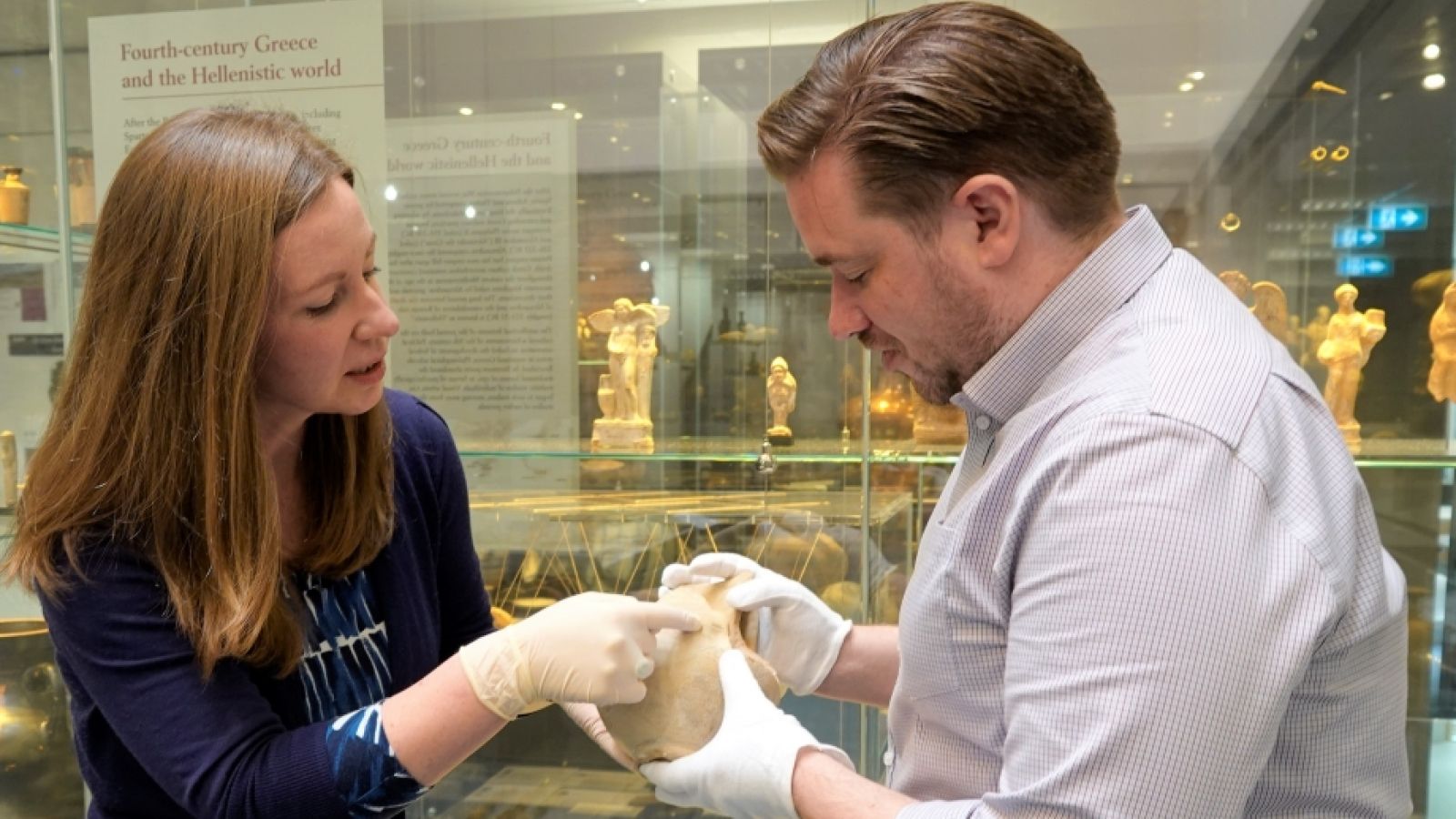New vision for Classical Studies at ANU connects ancient past with contemporary Australia

What are the duties of a good citizen? How should we remember problematic individuals? Can humans and machines co-exist? How do we cope with grief and loss? These are just some of the fundamental questions that individuals, communities, and governments grapple with on a daily basis. They will soon form the foundation of ANU’s exciting programme in Classical Studies, which covers the languages, literature, history, art, and culture of Ancient Greece and Rome.
“Classics is much more than just a subject – it’s a journey through the human experience,” says Associate Professor Caillan Davenport, Head of the Centre for Classical Studies. “The Ancient Greeks and Romans wrestled with issues such as the rights and powers of citizens and governments, questions of religious faith and tolerance, and wrote powerful meditations about the universal human feelings of love and loss.”
Associate Professor Davenport arrived at ANU in January to oversee the renewal of the Centre, which includes the hiring of four new academic staff. “We can’t rest on our laurels, if you’ll pardon the pun,” he says. “Our teaching must be about more than conveying content or generic skills – it should focus on ideas. Our job is to inspire and empower students to tackle the big intellectual questions so that they can make a difference to the world.”
From 2023, the Centre for Classical Studies will include new staff with expertise in Greek and Roman religion, music, technology, slavery, memory, and power, stretching from the Bronze Age to Late Antiquity. “We’ve hired top young scholars whose research really resonates,” Caillan says. “They will able to make powerful contributions to intellectual debates happening across Australia right now.”
A perfect example of this approach is a new subject debuting in Second Semester 2023, CLAS3001: Remembering and Forgetting in the Roman Empire, convened by new hires Dr Tom Geue and Dr Estelle Strazdins. “Tom and Estelle have designed a first-class course that will really engage students in a discussion about how we should commemorate the past, especially the roles of problematic individuals and cultures.”
Indeed, not everything the Greeks and Romans did was worthy of emulation. “It's important to recognize and appreciate that modern Australia is the product of imperialism and colonisation that was inspired by the Roman empire,” Caillan says. “That means Classical scholars need to be critics as well as communicators of the Greek and Roman past.”
Classics courses will tackle misunderstandings of the Ancient world that have been used inappropriately in modern political debates. “The idea that Rome fell because of immigration is a very dangerous idea, yet it has often been raised in recent years,” Caillan says. “If students take ANCH2026: Rome After Empire with Dr Meaghan McEvoy, they will discover that the ancient and modern worlds are much more complex than that.”
The Centre teaches Latin and Ancient Greek from beginner to advanced levels. Reading ancient texts in the original languages is essential, Caillan says, to really understanding the culture of the Greeks and Romans. “We encourage all our students to try a bit of Latin and Greek. We read ribald love poetry, heroic epics, blistering courtroom speeches, and hilarious graffiti. There’s nothing inherently elite or posh about Latin and Greek – the languages were spoken by labourers and statesmen alike.”
The ANU Classics Museum, which holds over 600 objects from Classical antiquity, is fundamental to the Centre’s efforts to broaden the Classical canon. “You can find representations of women, children, and slaves in the objects from everyday life,” says Dr Georgia Pike-Rowney, the Friends’ Lecturer and Curator of the ANU Classics Museum. “We have baby feeders, kitchen ladles, and a little sieve that was used for making cheese. When you touch these objects, you make a potent and tangible connection with someone who lived and breathed thousands of years ago.”
Dr Pike-Rowney’s position was funded by generous donations from the Friends of the Classics Museum, a group whose members have supported the Museum for over thirty years. “I’m so grateful to the Friends for their support,” Georgia says. “It really shows that the Classics resonates well beyond the realms of academia and captures the imagination of people from all walks of life.”
Georgia plans to enhance and expand the outreach work of the Museum and engage more people from all backgrounds and ages, including regional areas. “I want to open up the museum to some parts of the community that don't often have access to such things,” she says.
This focus on the material culture of Ancient Greece and Rome will be augmented by another new hire in Classical Studies, Dr Tatiana Bur, an expert in ancient technology. “Tatiana’s research is so fascinating”, says Caillan Davenport. “She helps us to understand how the Greeks created and used machines that were far ahead of their time, such as the Antikythera Mechanism. These lessons on how to live with technological change very much speak to our present circumstances.”
Classics Studies graduates go on to a wide variety of careers in journalism, education, museums and heritage, libraries, archives, and in the government and not-for-profit sectors. The journey is one that Georgia Pike-Rowney can speak about from personal experience, having worked in music, arts education, and health since graduating with a Classics PhD. “Classics helped me to develop a philosophy of life where an understanding of history allows us to interrogate the present.”
Learn more about studying classics at ANU here.